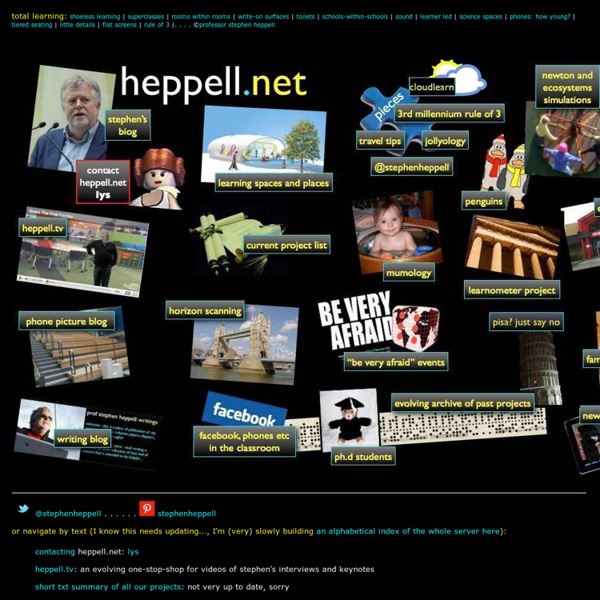Allan Kardec - Le Livre des Esprits
« Pour les choses nouvelles, il faut des mots nouveaux […] Nous dirons donc que la doctrine spirite ou le spiritisme a pour principes les relations du monde matériel avec les Esprits ou êtres du monde invisible. Les adeptes du spiritisme seront les spirites ou, si l’on veut, les spiritistes. »Allan Kardec, Le livre des Esprits. L’un de ses amis, l’écrivain Victorien Sardou, demande un jour à Kardec de lire des notes prises durant une séance. Enthousiasmé par la « sagesse et la charité » des messages, il décide de rassembler et d’étudier leur contenu, puis de solliciter par lui-même des réponses par le biais de médiums pour y découvrir des constantes.
Digital native
A digital native is a person who was born during or after the general introduction of digital technologies and through interacting with digital technology from an early age, has a greater understanding of its concepts. Alternatively, this term can describe people born during or after the 2000s, as the Digital Age began at that time; but in most cases, the term focuses on people who grew up with the technology that became prevalent in the latter part of the 20th century and continues to evolve today.[citation needed] Other discourse identifies a digital native as a person who understands the value of digital technology and uses this to seek out opportunities for implementing it with a view to make an impact. This term has been used in several different contexts, such as education (Bennett, Maton & Kervin 2008), higher education (Jones & Shao 2011) and in association with the term New Millennium Learners (OECD 2008). Origins[edit]
bluyonder
Digital literacy project part 1
I was asked recently to participate in a digital literacy project at the UEA with other Norfolk teachers. This immediately excited me as it not only includes areas of teaching that I am passionate about, but also came at a time when ICT and literacy have become even more prominent in my working life. I have been employed by cluster schools to provide outreach for ICT, but with a strong emphasis on writing as it an area within the cluster targeted for development. I am also working with a fellow 'ex-AST' to put together an 'Inspiring Writing' blog, though credit must be given to Jenni for doing a much larger chunk of the work so far (this is a work in progress, not a fully polished site).
DesignShare Home
Faux Paw the Techno Cat
As a caring educator, you can equip your students to be ahead of the curve and understand early on the intricacies of new media and cybersafety. Students spend half of their waking hours connected to digital devices—impacting their reputations, learning opportunities, and futures. Faux Paw the Websurfing Techno Cat series has been created by a team of leading child psychologists, educators, and law enforcement. This engaging curriculum—complete with books, animated DVDs, and lesson plans—will captivate the attention of your students and teach them how to appropriately conduct themselves online and in the digital space.
Sabotage: Teach Debugging By Stealth
The majority of my work at the moment is supporting ICT teachers who want to introduce and develop Computing within their own curriculum ahead of the changes planned for September 2014. Throughout my work with other teachers, I’ve been sharing some of the pedagogic devices and strategies I’ve been using with the aim of ensuring that their teaching of Computing is engaging and inspiring. One such game that I’ve developed with my classes I call ‘Sabotage’. I’ve discovered that this can be used in a whole variety of ways, but to help you develop an understanding of it I will attempt to describe just one simple example for you. The Problem:
The Internet Is Making You Smarter, Really
In his new book, “Smarter Than You Think,” journalist Clive Thompson argues that the digital revolution – from search engine sophistication to status update proliferation – is actually dovetailing with how the human brain naturally works to make us better thinkers. Thompson is no latter day Cassandra (or, for that matter, Nicholas Carr), warning that new technology will rob us of our capacity to concentrate, create or text in complete sentences. A technology reporter for Wired and The New York Times Magazine, he is an enthusiastic and optimistic cheerleader for new technology.
If You Think We Are Alone In The Universe – You Might Want To See This
One of the most popular questions today is “are we alone in the universe?” Believe it or not, you’re in the minority if you believe that absolutely no intelligent life exists in the universe. In the United States alone, at least half of all Americans say that we’re not alone in the universe.
25 Spectacular Movies You (Probably) Haven't Seen Pt. 2
Human Traffic Very unique comedy about the drug/club culture in the UK. Five friends ponder society, drug use and their own lives as they go about their usual weekend of snorting, smoking, popping, dancing and sex.



